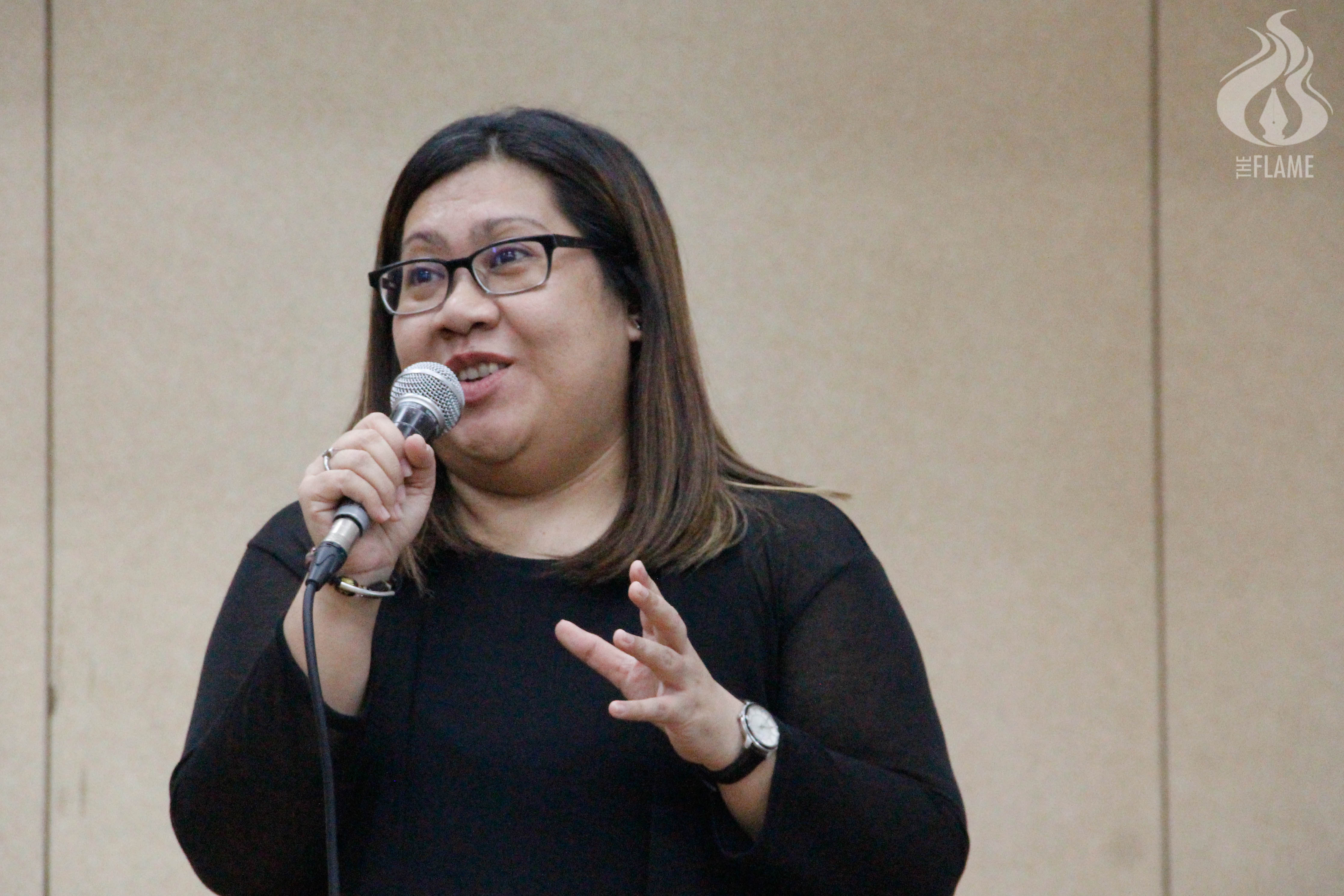
IN ORDER to be welcoming to a person’s weaknesses in the English language, one must re-evaluate his perceptions on how the language is received by different social groups, a professor from the University of the Philippines (UP) told Thomasians in a lecture held March 28.
Aileen Salonga, associate dean for academic affairs of the UP College of Arts and Letters, argued that people from different groups or culture do not share the similar perspective and relationship toward the English language.
“Participants themselves have different relationships with English. We may have all of these debates but not everyone will access these arguments or if they do, they [may] have different appreciation of the arguments because they have different realities,” said Salonga, who teaches English in UP.
“We begin to examine why we cringe when Filipino speakers commit grammatical mistakes [and] we can begin to trace that reaction to an ideology that is highly problematic, tends to discriminate against certain groups of people, and obscures the political nature of learning and speaking English in the Philippines,” she added.
Language mastery affects how one relates to and feels about the usage of the English language, the UP professor said.
“Those who have a more positive relationship with English are those who are genuinely proficient in the language. They use it well. […] Those who are ambivalent, those who have guilt or in anger, […] their relationship with English has been mostly complicated because some of them struggle in using the language.”
Seventy percent of Filipinos in 2016 are fluent in English, a statement from the Board of Investments read. However, the Philippine National Statistics Office previously identified that only residents from the “more developed administrative regions” of the country pose a high English-speaking ability.
“So do not shake heads and laugh anymore when you hear people commit a lot of grammatical mistakes,” Salonga said. “It is only when we begin to examine and politicize feelings or emotions that we can also begin with meaningful change or transformation in the way English is felt and therefore, acted out and acted upon.”
The academic lecture was organized by the UST English Language Society. F – Maria Eden T. Dino



